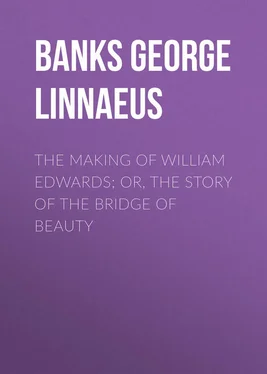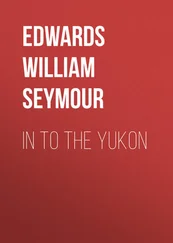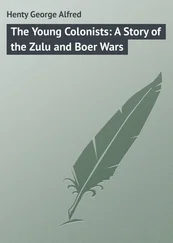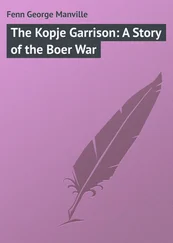George Banks - The Making of William Edwards; or, The Story of the Bridge of Beauty
Здесь есть возможность читать онлайн «George Banks - The Making of William Edwards; or, The Story of the Bridge of Beauty» — ознакомительный отрывок электронной книги совершенно бесплатно, а после прочтения отрывка купить полную версию. В некоторых случаях можно слушать аудио, скачать через торрент в формате fb2 и присутствует краткое содержание. Жанр: foreign_prose, foreign_antique, foreign_language, на английском языке. Описание произведения, (предисловие) а так же отзывы посетителей доступны на портале библиотеки ЛибКат.
- Название:The Making of William Edwards; or, The Story of the Bridge of Beauty
- Автор:
- Жанр:
- Год:неизвестен
- ISBN:нет данных
- Рейтинг книги:5 / 5. Голосов: 1
-
Избранное:Добавить в избранное
- Отзывы:
-
Ваша оценка:
- 100
- 1
- 2
- 3
- 4
- 5
The Making of William Edwards; or, The Story of the Bridge of Beauty: краткое содержание, описание и аннотация
Предлагаем к чтению аннотацию, описание, краткое содержание или предисловие (зависит от того, что написал сам автор книги «The Making of William Edwards; or, The Story of the Bridge of Beauty»). Если вы не нашли необходимую информацию о книге — напишите в комментариях, мы постараемся отыскать её.
The Making of William Edwards; or, The Story of the Bridge of Beauty — читать онлайн ознакомительный отрывок
Ниже представлен текст книги, разбитый по страницам. Система сохранения места последней прочитанной страницы, позволяет с удобством читать онлайн бесплатно книгу «The Making of William Edwards; or, The Story of the Bridge of Beauty», без необходимости каждый раз заново искать на чём Вы остановились. Поставьте закладку, и сможете в любой момент перейти на страницу, на которой закончили чтение.
Интервал:
Закладка:
The boy, who had no hat to remove, could only look on and listen in blank astonishment, understanding nothing of the solemn ceremony, but awed by the mysterious proceedings, and the unfamiliar aspect of the, to him, vast interior.
It was not until he beheld the coffin lowered into the 'big hole' that he screamed out, and was not to be pacified, though Owen Griffith stole gently away from the grave-side and took him in his arms for the second time that day.
The ceremony was soon over, and nothing heard but the sobbing of the mourners and the dropping of small coin into the shovel the sexton held forth for their reception; for thus were the fees of the vicar and himself paid by general contribution, and not merely by the bereaved relatives. It was an old custom, seldom better observed than on this occasion; for of the motley multitude drawn thither to show their esteem for the dead and their sympathy with his family, two-thirds were wofully poor, had travelled far, and lost a day's earnings to be there; but few so poor as to pass the sexton's spade without a tributary coin, however small. Set it, therefore, to their credit, and also that all were decently clad, and flaunted no rags, if they had no crape to mourn in. Custom is its own law, and respect is not shown by the colour of a coat.
But what of the little fellow who had found his way thither, and created so much consternation by his unseemly interruption?
CHAPTER IV.
PAYING THE RENT
''Deed to goodness! that boy's rightly named, for he's Will by name and will by nature!' said Ales when the child was brought home, showing no remorse for the trick he had played her, and little but indifference to the chiding of his mother or Rhys.
'Me fought they was take you all away. Me said me would go. Me did go!' was all the excuse they could extract from him.
He had made his return home triumphantly on the donkey of his stranger friend, a peat-cutter named Robert Jones, and was not at all disposed for humiliation. On the contrary, he was rather proud of his victory, and excited by his introduction to new scenes.
The man, who was hospitably received and entertained, along with a numerous party of 'cousins,' for whose refection boiled beef and cwrw da had been again set out, was quite ready to recount where and how he had picked up the child, and expressed his surprise at the resolute endurance that had carried him so far on a stony, unknown road, no less than the strong affection which had overpowered the little fellow's natural fears and sense of fatigue or pain.
He repeated with much humour some of the boy's queer questions and sayings, promising to give him another donkey-ride some day. And finally, when taking his departure, Robert Jones patted the boy's brown head, and called him 'a little hero!' as the child ran past with Jonet.
This was not very wise, for the tone of admiration was ill calculated to repress the child's early developed strength of will, or to soothe the ruffled feelings of Rhys on finding his own superlative good conduct apparently unappreciated, and William's wilful disobedience thus applauded.
His chagrin did not escape the notice of the man, who, going round the country as he did, selling peat and culm, 7 7 Culm, the dust of hard coal, used for fuel when mixed with clay and peat.
had frequent opportunities for the study of human nature.
'Yes, look you,' cried he from the doorway, as he saw a scornful curl on the lip of Rhys, 'your little brother will be greater than any of you some day – head of the house perhaps.'
'He never will. I'm eldest, and then there's Davy. He's a baby!' was Rhys' indignant protest.
'A great good man, or a great bad one, Robert Jones?' called out Ales after the turf-cutter, an old acquaintance of hers. She had not forgiven William the fright he had caused by his escapade.
'Indeed, sure, and that depends on what you make of him among you,' the peat-cutter called back over his shoulder, ere he bestrode his donkey and went off.
'The man is right, Jane Edwards,' said Owen Griffith then to the widow; 'there do be great capacities for good or evil in Willem; he will need a firm hand to control him.'
'Ah, sure,' she sighed deeply, her grey eyes filling with tears, 'and now the firm hand is gone.'
'Ah, 'deed for sure! more's the pity!' was echoed round the board.
Rhys alone made no remark; but he set his lips close over his teeth, and tightened his grip on his knife-handle, looking as if he thought his hand firm enough to control his baby-brother, and as if he meant to curb the wilful little one, whatever others might do. Ales saw it, if the mother did not.
Meanwhile William, unaware of his eldest brother's paternal intentions, was seated under an apple-tree with Jonet, struggling for words to give expression to all the wonders he had seen and heard that day, the 'big house with the big chimney' more than all; whilst Davy, leaning listlessly against the tree trunk, as if fatigued with his long walk, crammed his mouth with bread and cheese, and smiled complacently at the youngster's first impressions of things familiarity had deprived of attraction for him, though over some he looked serious enough.
Five miles away on the south-east from the mountain spur on which the Edwards' family had held a farm for more than a century, lay, in a broad plain among barren hills, the grand old ruins of Caerphilly Castle, the ancient stronghold of the Despencers, and the very small straggling market town it overshadowed, a town which had either gone to ruin or ceased to grow, since the great castle had been despoiled and tenantless.
It had ceased to be a borough in King Henry VIII.'s time, but still it clung to its fair and market, and thither came farmers and their wives with their produce; miners or their wives, and the servants from the few great houses thereabouts, as buyers. And there, too, came, at stated periods, with his string of pack-horses, the travelling collector of the hand-made goods of the district, such as knitted hosiery, linen checks, woollen shawls, flannels, blankets, all spun and woven in farms and cottages scattered among the mountains. He was the medium between the English merchant and the poor producer, who in the days when there were neither canals nor railroads, nor any facilities for swift conveyance of goods or people, could otherwise have found no market for his wares. As it was, the weaver might probably have obtained better prices at Cardiff, but the miles of extra distance had to be calculated in the reckoning.
Early on the Thursday morning Mrs. Edwards, with a grey duffle 8 8 Duffle, made both in scarlet and grey, was a very thick, close-grained woollen cloth, its upper surface covered with pin-head curly knots. It was almost waterproof.
cloak over her short black linsey 9 9 Linsey-woolsey, a mixture of linen and woollen, is still in use.
gown, and a black, low-crowned man's hat above her white linen cap, her healthy face pale and worn with the agitation of the week, stood by her egg and butter basket, debating whether she should go to the market alone, or yield to the entreaty of Rhys and take him along with her.
It was likewise the rent-day. Mr. Pryse, the noble landowner's steward, condescendingly rode all the way from Cardiff to Caerphilly to meet his lord's tenantry at the little inn, 'The Cross Keys,' and woe betide the poor unfortunate who failed to put in an appearance, or to bring the full quota of coin.
She was in no predicament of that kind, although she felt she might have been; but, hitherto, Edwards had always paid the rent himself, even if she had borne him company, and she rather shrank from her first encounter with the disagreeable agent.
'You had better let me go, mother. Mr. Pryse will find that you are not quite alone, and may be more civil when he sees how big and strong I am, whatever,' urged Rhys.
Читать дальшеИнтервал:
Закладка:
Похожие книги на «The Making of William Edwards; or, The Story of the Bridge of Beauty»
Представляем Вашему вниманию похожие книги на «The Making of William Edwards; or, The Story of the Bridge of Beauty» списком для выбора. Мы отобрали схожую по названию и смыслу литературу в надежде предоставить читателям больше вариантов отыскать новые, интересные, ещё непрочитанные произведения.
Обсуждение, отзывы о книге «The Making of William Edwards; or, The Story of the Bridge of Beauty» и просто собственные мнения читателей. Оставьте ваши комментарии, напишите, что Вы думаете о произведении, его смысле или главных героях. Укажите что конкретно понравилось, а что нет, и почему Вы так считаете.












